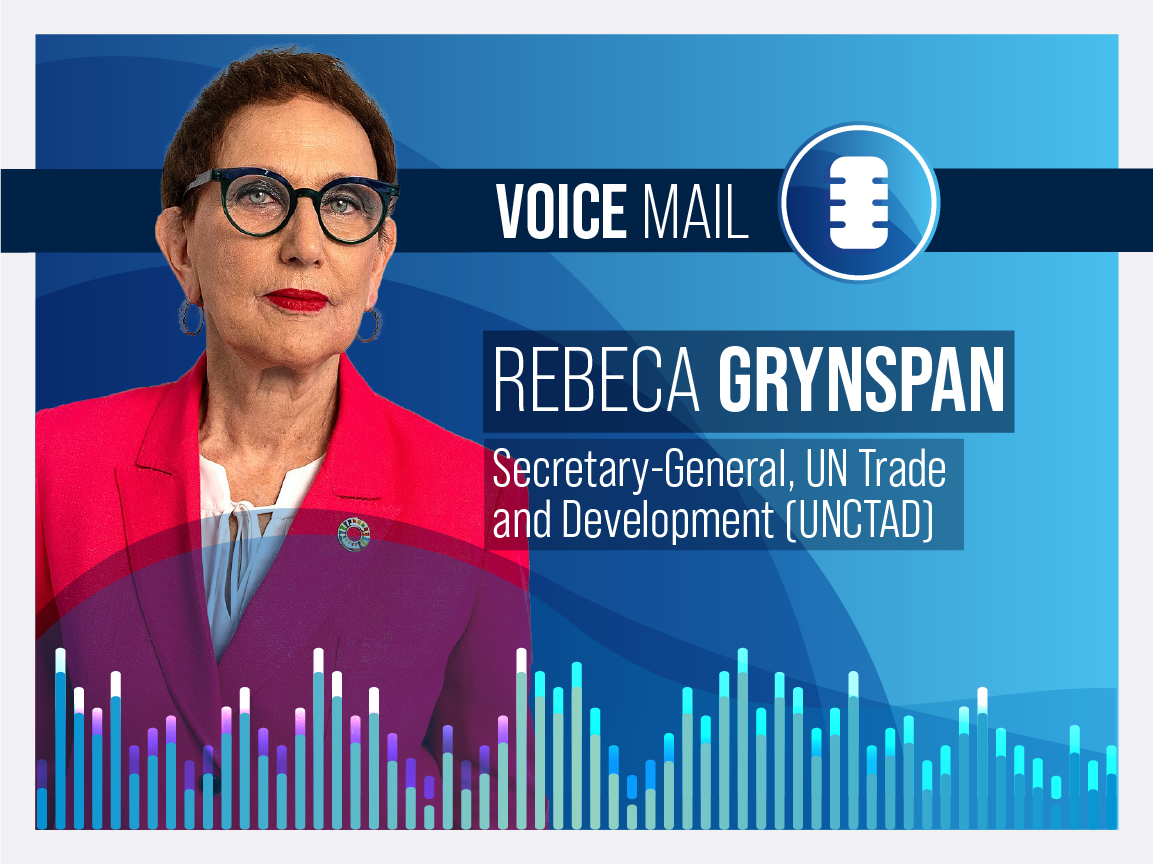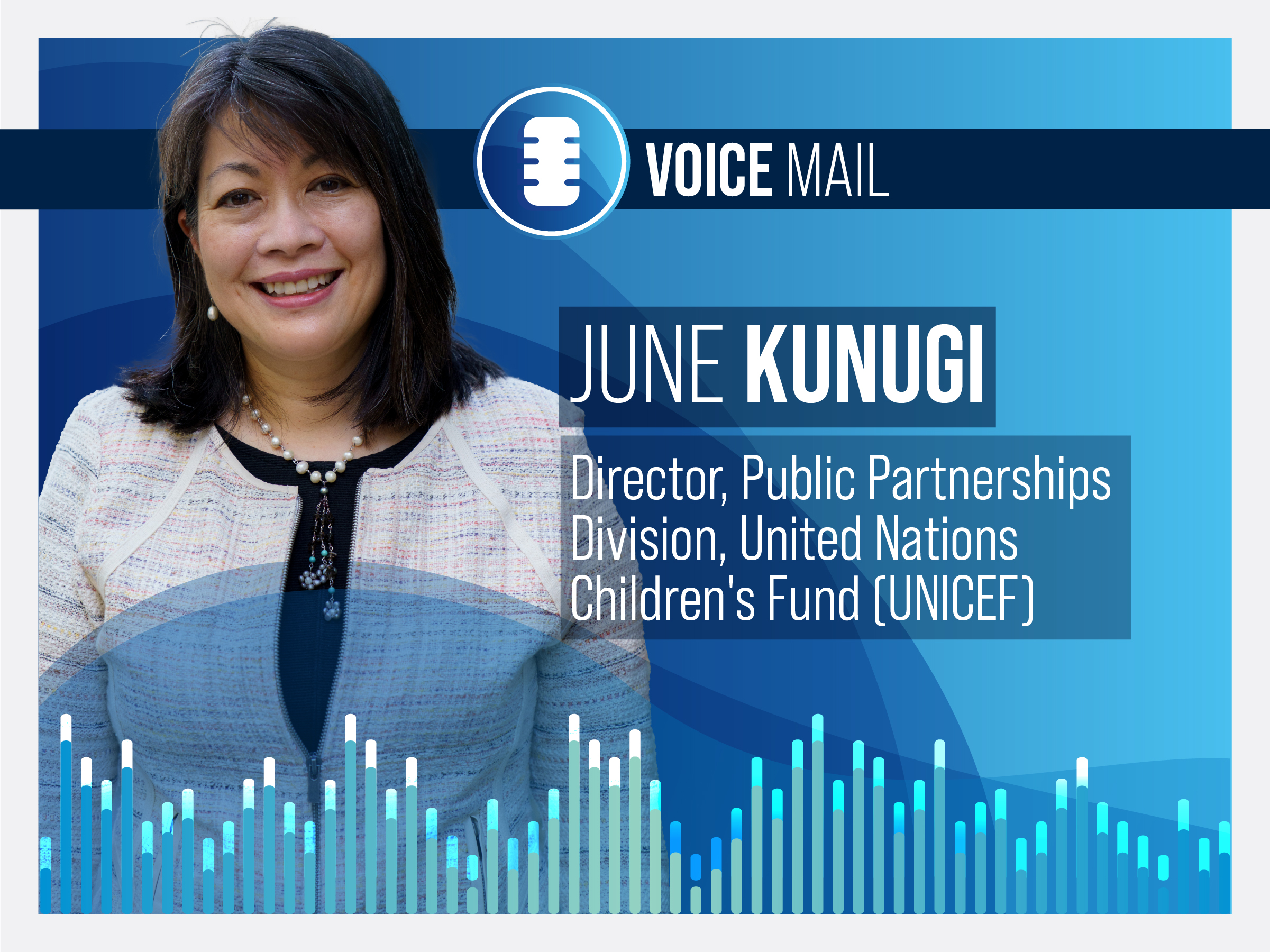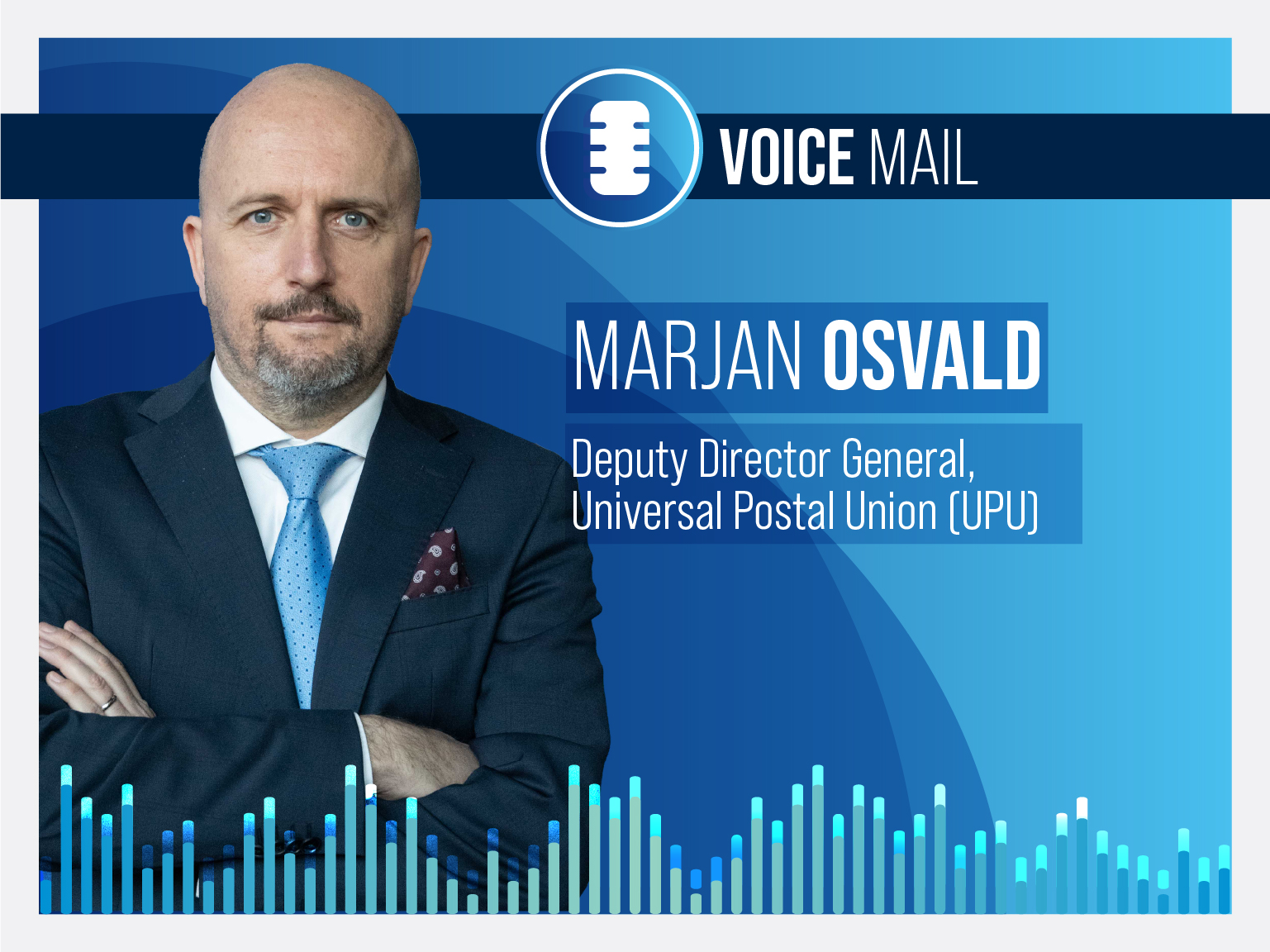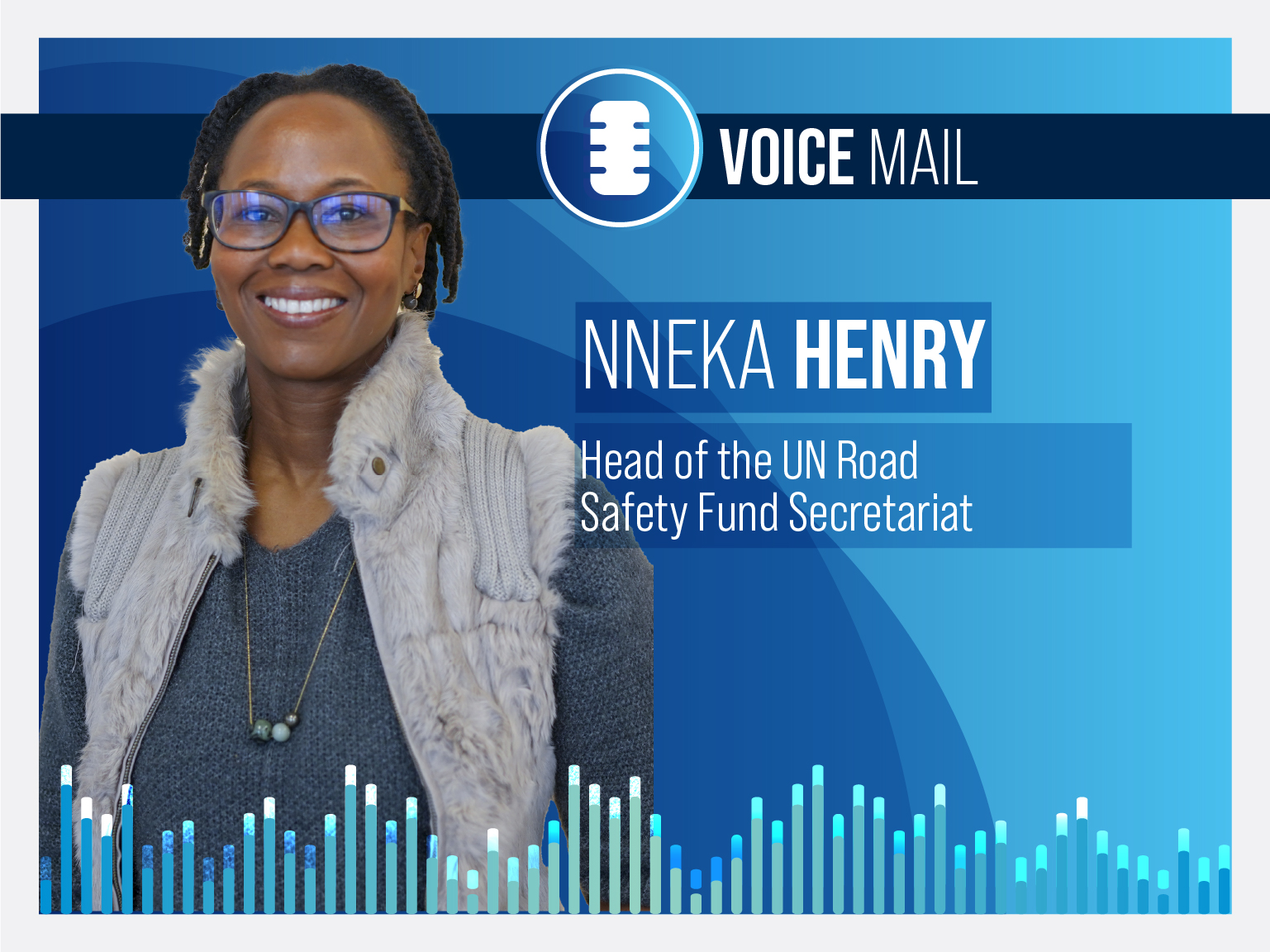
Each episode of Voice Mail offers a postal story from around the world. We will speak to the people who deliver the mail, the decision makers that influence the sector, and those who work so hard behind the scenes to help things move from A to B. Through personal reflection, anecdotes and insights, we will look at how the post forms an essential part of the United Nations and its efforts to support sustainable development.
You can find and subscribe to Voice Mail also on Podbean, Apple Podcasts, Spotify, and YouTube.
To advance the discussion on the most topical issues, the UPU also runs "Voice Mail Exchanges" - a series of public online events. Click on the links below to watch the previous discussions, and keep checking our events page to attend future events.
Posts, Planet and Economies: A circular route to postal sustainability
Sustainable means equal: Women in postal leadership
ICT for SIDS: Small posts at the forefront of digital transformation
Partnerships without borders: Inclusive collaboration in the globalized world
Innovating equality: The Post as an engine of digital empowerment
 Episode 31: Reimagining air transport for the digital age
Episode 31: Reimagining air transport for the digital age
With 80% of cross-border e-commerce transported by air, air cargo is a cornerstone of global trade. Beyond enabling these economically vital exchanges, air transport fosters development, creates jobs, improves infrastructure, and drives global connectivity. Since its founding in 1945, the International Air Transport Association (IATA) has played a key role in shaping the air transport industry. Representing 320 airlines and 83% of global air traffic, IATA focuses on setting global standards, improving operational efficiency, and addressing the evolving challenges of the aviation sector. Its partnership with the UPU is nearly as old as IATA itself. For seven decades, the two organizations have worked together to align postal and aviation processes, address safety and security concerns, and enhance the seamless exchange of data across the supply chain.
In this episode of Voice Mail, André Majeres, Head of E-Commerce and Cargo Operations at IATA, explores how air cargo underpins cross-border e-commerce, a market projected to account for one in three parcels globally by 2027. He discusses IATA’s key priorities – safety, security, digitalization, and sustainability – and emphasizes that open collaboration among all supply chain stakeholders, innovation, and seamless integration are essential to the persistent vitality and relevance of post-airline cooperation.
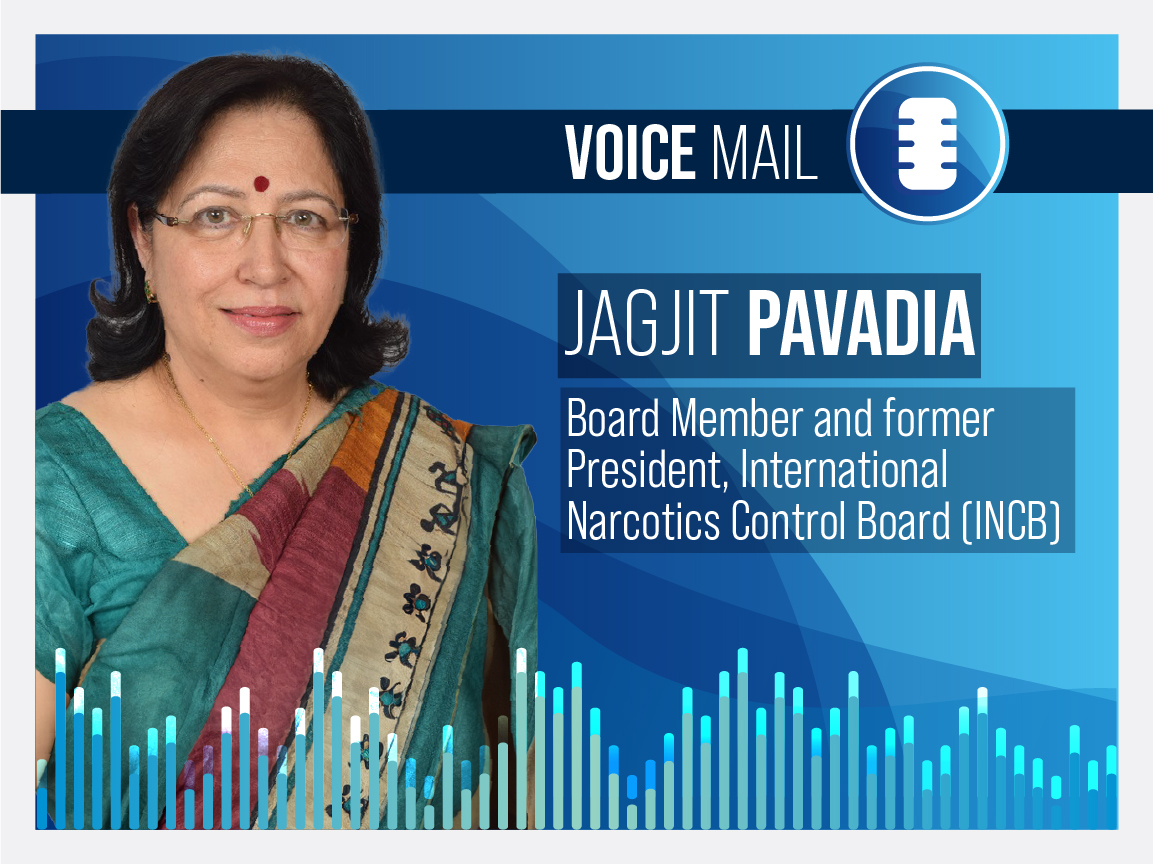 Episode 30: One step ahead: Turning the tide in the fight against illegal drug trafficking
Episode 30: One step ahead: Turning the tide in the fight against illegal drug trafficking
Illicit drug trafficking is a shadowy industry with devastating impacts: depleting socioeconomic resources, disrupting trade, fuelling corruption, and eroding social cohesion. Its ripple effects extend across health systems, public infrastructure, and even the environment – deforestation and soil degradation are just some of its hidden casualties. In 2024, nearly 300 million people worldwide were reported to use drugs (UNODC), underscoring the urgent need for coordinated action.
This transnational challenge evolves rapidly, with traffickers exploiting ever-changing routes, methods, and substances – most alarmingly, synthetic opioids. These potent drugs, traded in minute quantities, are hardly detectable, presenting unprecedented challenges for enforcement agencies.
In this episode of Voice Mail, Ian Kerr speaks with Jagjit Pavadia, Board Member and former President of the International Narcotics Control Board (INCB), to uncover how global cooperation can outpace criminal ingenuity. Pavadia shares insights into international partnerships, innovative technologies, and the critical role of the postal network in combatting illicit trafficking. From risk profiling and real-time intelligence sharing to training postal operators to detect illegal substances – even hidden in the heels of stiletto shoes – this episode explores actionable solutions to a pressing global crisis.
In an era defined by technological transformation and shifting economic landscapes, the challenge of ensuring equitable global development has never been greater. Trade, when facilitated effectively, can be a powerful tool to bridge divides and foster sustainable growth, but only if all countries – especially developing ones – can participate fully.
Ahead of its 60th anniversary, the United Nations Conference on Trade and Development (UNCTAD) is leading the charge to make global trade more inclusive. In this episode of Voice Mail, we sit down with Rebeca Grynspan, UNCTAD’s Secretary-General, to explore how the organization is supporting developing countries in navigating the complexities of the digital economy and ensuring no one is left behind. Grynspan discusses how UNCTAD’s collaboration with partners like the UPU is helping to reduce barriers for small businesses and empower women entrepreneurs through initiatives like eTrade for Women. Grynspan is certain: even in the rapidly changing world, trade can remain a force for good, if we ensure that the weakest can also have a seat at the table.
How to keep the art of writing alive in an era when all communication is done digitally? Once indispensable for distance communication, letter writing used to serve as an important educational tool that developed children’s cognitive and creative capacities, teaching them how to organize and articulate their thoughts. As a more humane and empathetic means of exchange, letters also used to facilitate international connections in spite of differences – something the world increasingly needs today and which is harder to attain through digital messaging only.
Ahead of the UN Summit of the Future in September 2024, the UPU partnered with the United Nations Children's Fund (UNICEF) to ask children from around the world about their vision of and hopes for the future through the UPU’s flagship International Letter-Writing Competition. Just a few weeks ahead of the deadline for submissions, the UPU sat with June Kunugi, Director of Public Partnerships at UNICEF, a professional journalist, and one of the competition’s jury members, to discuss how the initiative supports UNICEF’s mission to advocate for children’s rights. In this latest episode of Voice Mail, Kunugi highlights how UNICEF’s engagement in the competition will help increase opportunities for children in the most disadvantaged and remote communities, how to turn the risks of technology into new opportunities for youth’s engagement and empowerment, and how we should all work together to ensure that the voice of every child is pronounced and listened to.
 Episode 27: Gender equality, a right and smart thing to do
Episode 27: Gender equality, a right and smart thing to do
According to the Global Gender Gap Report 2023 (World Economic Forum), not a single country has yet achieved gender equality. While some countries approach it, sharp disparities persist at the global level, making it imperative not only to accelerate overall progress, but also to help those lagging behind catch up. More than a decade ago, Australia took an important and exceptional step in this direction by creating a dedicated foreign service position to advocate for gender equality outside its borders.
Considering gender equality as a crosscutting issue, Australia also takes an active stance in advancing the women’s empowerment agenda in various international fora, including the UPU. By putting forward a number of initiatives and innovations, including nominating a UPU Gender Equality Champion, the country is demonstrating its interest in discussing gender equality in the post, as well as its readiness to take the lead in making it happen.
For its annual International Women’s Day special, Voice Mail has invited Stephanie Copus Campbell, Australia’s Ambassador for Gender Equality, to talk about her wide-ranging portfolio and how the postal sector plays into it. In a conversation with Ian Kerr, she explains why, despite setbacks and challenges, fighting for gender equality will benefit all.
 Episode 26: The forerunner of connectivity – UPU 150th anniversary special edition
Episode 26: The forerunner of connectivity – UPU 150th anniversary special edition
The evolution of cross-border communication has undoubtedly shaped the world as we know it today. The fast increase and diversification of communication flows, socioeconomic globalization, and growing migration and mobility would hardly sustain without innovative political arrangements and new ways of international cooperation. In 1874, the newly founded Universal Postal Union not only harmonized these processes, making exchanges easier, cheaper and safer, but, together with the International Telegraph Union, stood at the origin of global multilateral governance. Throughout years, the UPU endured crises, wars, economic instability, health, climate, and other types of emergencies, while working to keep its original promise of facilitating communication between peoples in the face of a rapidly changing world.
The upcoming UPU historians’ colloquium presents the first-ever opportunity for the postal and academic communities to come together to reflect on the global past of the UPU. We spoke with Dr Léonard Laborie, Historian at the National Center for Scientific Research (CNRS), UMR SIRICE, one of the colloquium’s co-organizers, about how and why the UPU emerged as a forerunner of global connectivity, how it shaped and was shaped by international politics, and why cooperation among postal operators will remain the key to the organization’s lasting vitality.
Technology and integration are redefining the postal market. In quest of ways to diversify their services and remain competitive, posts, big and small, are forging new partnerships and adopting unconventional, high-tech solutions which help them generate new revenue streams and improve customer experience.
In October 2023, the UPU brought together seasoned postal experts and senior executives within a new format of its World Leaders Forum to get a first-hand account of this new postal reality, the solutions that work and the challenges that remain. On the sidelines of the Forum, UPU Voice Mail host, Ian Kerr, spoke to postal CEOs and UPU Consultative Committee members about the future of logistics and how public-private collaboration can make it brighter for everyone.
On this special podcast edition, Tawnee Steinke, Head of Global Strategic Partnerships at Zonos, identifies three main trends that are going to change cross-border logistics; Charles Brewer, CEO of Pos Malaysia, shares his experience of pioneering green technologies in the country and driving change in the broader market; and Mariella Buisson, CEO of Seychelles Postal Services, explains how small postal operators can use technology to become a one-stop shop for citizens.
 Episode 24: Pioneering philately – Bringing to life the world’s first crypto stamp
Episode 24: Pioneering philately – Bringing to life the world’s first crypto stamp
In 2019, Austrian Post disrupted the centuries-old philatelic market with the issuance of the world’s first crypto stamps. With its unique credit card shape, particular unicorn design, and special security features, crypto stamp 1.0 was well-met by collectors, selling out within days and changing the world of philately forever. Yet, its association with blockchain and vague connection to cryptocurrencies, notorious for their volatility, did not let the innovation escape controversy, especially when it comes to protecting and harmonizing the newly born and rapidly growing field of digital philately.
Four years and numerous crypto stamp issues later, the UPU invited the team behind their creation – Patricia Lieberman, Head of Philately at Austrian Post, and Michael Dorner, CEO of a crypto stamp manufacturer and UPU Consultative Committee member, Stampfinity – to recount the story behind the production of the famous unicorn stamp and the challenges of introducing innovation to a highly traditional field. On a special double Voice Mail podcast episode, we talk about the meticulous process of finding the right product to meet market needs, the intricate technology behind crypto stamps, changes in collector demographics, and the importance of collaboration and standards for successfully revitalizing the postal industry.
 Episode 23: Saudi Post – Customers’ touchpoint with the future
Episode 23: Saudi Post – Customers’ touchpoint with the future
In Saudi Arabia, a young and ambitious country strategically positioned at the intersection of three continents, the postal sector shares the dynamism, ambition, and boldness of the nation’s Vision 2030. In recent years, the country’s postal services have undergone profound transformations, including transferring the authority for the sector from the Ministry of Communications to the Ministry of Transport and Logistics, allowing data to take centre stage in setting postal strategy, diversifying the post into healthcare, and supporting government services for improved quality of life. These strides do not only dramatically increase the postal value proposition to customers, making the post more relevant, but they also put Saudi Post in the spotlight as a regional leader and an interesting global success story. The post views seizing the opportunities of digital transformation, using technology in new and creative ways, and forging forward-looking partnerships as fundamental elements in the success of its new business model.
Just a few days ahead of the historic UPU Extraordinary Congress in Riyadh, Ian Kerr spoke to H.E. Anef Abanomi, President of Saudi Post, about how the postal operator is turning into a touchpoint between government agencies, businesses and their customers, what digitalization has to do with it, and what hosting the global postal community means to the country.
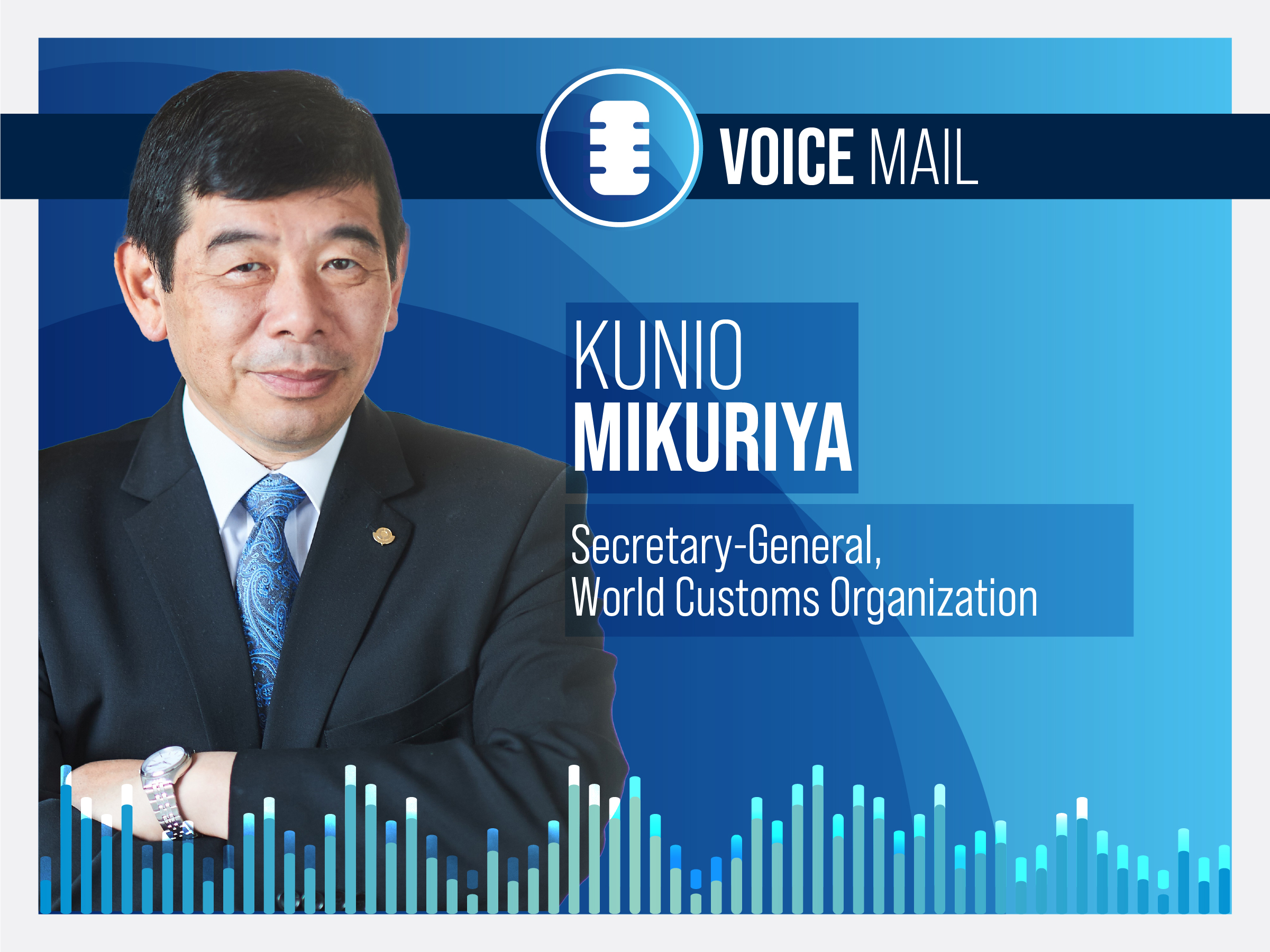 Episode 22: Shifting paradigms – Posts-Customs cooperation in the era of e-commerce
Episode 22: Shifting paradigms – Posts-Customs cooperation in the era of e-commerce
The World Customs Organization (WCO) represents 185 Customs administrations that collectively process approximately 98% of world trade. In the era of digitalization, these border authorities find themselves in the epicentre of global e-commerce, influencing the country’s economic competitiveness, defining the ability of its small businesses to reach global markets, and protecting its citizens from illicit trade. With the level of national Customs development becoming the touchstone of overall socioeconomic performance, it is imperative to ensure that this development is speedy, harmonized and coordinated. This is where the WCO, with its mandate to build capacities and promote cooperation, comes in to fill in the gaps.
A few days ahead of the WCO-UPU Global Conference 2023, dedicated to cross-border e-commerce, Ian Kerr spoke to Dr Kunio Mikuriya, WCO Secretary-General, about the evolving role of Customs, the challenges and opportunities they have in common with the postal sector, the importance of trust for the smooth movement of goods across borders, and why cooperation, specifically with the Post, is in Customs’ DNA.
According to the International Telecommunication Union (ITU), around 2.7 billion people – one-third of the global population – remained unconnected to the Internet in 2022. This persistent digital divide disproportionately affects women and girls, especially in rural areas and developing communities, leaving them outside of the rapidly growing digital economy. The ITU, a sister agency with which the UPU shares a long history of connecting people and a common goal of advancing universal digital inclusion, strives to use ICTs and technological innovations to transform people’s lives, including those of women.
In line with the global theme of International Women’s Day 2023, the UPU invited Doreen Bogdan-Martin, ITU Secretary-General and the first woman to hold this post, to share her views on how digital technologies can open new opportunities for women and girls. She delved into how global digital partnerships, like Giga or connect.post, can help unlock this potential, and why transformative leadership is essential to bridge the digital gender gap and accelerate our progress towards a more equal, connected future.
According to UN Women, over the past decade, women’s exclusion from the digital sphere has cost low- and middle-income countries $1 trillion of potential GDP. As a traditional provider of postal social and digital services that accelerate national development, the Post can help and support women, especially in developing and least developed communities, to take full advantage of digital transformation. On the occasion of International Women’s Day 2023 celebrated under the global theme of innovation for gender equality, Ian Kerr spoke to Marjan Osvald, UPU Deputy Director General and the first UPU Gender Equality Champion. They discussed ways that Posts can lead change towards a more equal world, how the UPU and partners work to promote this leadership, and how small steps can make a big difference.
 Episode 19: Allied against illicit trade
Episode 19: Allied against illicit trade
Illicit trade is hardly a new phenomenon. What is new, however, is its recent unprecedented growth spurred by globalization and the internationalization of trade. Counterfeits, smuggled tobacco and alcohol, unauthorized pharmaceuticals, pesticides, petroleum, and wildlife – the scope of illicit trade is enormous and, although each region experiences it differently, there are common vulnerabilities that make supply chains prone to such illegal exploitation. Identifying commonalities to develop a more holistic approach to eliminating illicit trade is the main goal of the Transnational Alliance to Combat Illicit Trade (TRACIT), an independent, business-led initiative to secure the global supply chain and a new UPU postal security partner. On a new episode of Voice Mail, recorded just one week before formalizing this new collaboration, Ian Kerr spoke to Jeffrey Hardy, TRACIT’s Director General, about the dangers illicit trade presents to postal customers and employees, the costs it incurs on postal infrastructure and the ways to avoid these risks through public-private partnerships and capacity building.
Road safety is crucial to postal organizations. With millions of postal workers using the roads daily, raising awareness of road traffic rules and ensuring the safety of equipment and infrastructure is vital for Posts if they are to operate smoothly and efficiently. However, the quality of broader road traffic infrastructure and policies is highly dependent on the level of socioeconomic development and varies drastically across regions. While 1.3 million people perish on the roads every year, the majority of them being youth, road safety remains a largely underinvested area in more and less developed communities alike.
Established in 2018, the United Nations Road Safety Fund (UNRSF) helps bridge these gaps in road safety finance by working with different actors to mobilize the resources needed to support high-impact projects. On this episode of Voice Mail, Nneka Henry, Head of the Fund’s Secretariat, explains why investing in road safety is crucial, what the main challenges of securing road safety finance are, why partnerships are key to make a difference, and where Posts can step in to help meet the ambitious Vision Zero to end traffic-related fatalities. Finally, in the run-up to the International Day of Education on January 24, we talk about the importance of protecting the most vulnerable road users, children.
*To help raise awareness of road safety among the youngest community members, the UPU and the UNRSF are partnering on this year’s edition of the UPU’s International Letter-Writing Competition for youth. To learn more, click here.
 Episode 17: Building climate resilience in Africa
Episode 17: Building climate resilience in Africa
COP27, the major global climate change forum convened annually by the United Nations, ended on 18 November 2022, leaving a mixed feeling of satisfaction and disappointment among its diverse participants. An immense challenge for negotiators, for international climate finance bodies like the African Development Bank (AfDB), the Conference is a unique opportunity to network and secure the vital funds needed to save livelihoods and advance a carbon-neutral, climate-resilient future.
Africa is the continent most in need of such support. With only 3.5-4% of total global climate finance coming to Africa – most of which is reserved for mitigation activities – there is more to be done to help African communities adapt to climate disruptions quickly and efficiently. From improving energy access, switching to renewables, managing waste and increasing recycling to establishing carbon-neutral infrastructure and building awareness of climate-friendly options and technologies, successful climate adaptation and mitigation require contributions from a wide network of actors, including the Post. The latest episode of the Voice Mail podcast, featuring AfDB Climate and Environment Finance Manager Gareth Phillips, focuses on the state of climate finance in Africa and means of building the continent’s resilience to climate shocks, highlighting the widest gaps and the most promising solutions.
 Episode 16: Cross-sector cooperation, a recipe for postal success
Episode 16: Cross-sector cooperation, a recipe for postal success
With the increased diversity of products, services, solutions and providers, today’s postal industry faces complex challenges that give rise to a vast variety of approaches, opinions and strategies. One fact, however, is clear for everyone: the pace with which the postal market changes keeps accelerating making quick adaptation and agility key business assets. In 2021, the UPU broke the ground with the decision to transform the challenge of the increased diversity of players into an opportunity by reforming the Consultative Committee, its main platform for cross-sector cooperation. That decision took effect 1 July 2022. Ian Kerr spoke to new members Eurora and Stampsdaq, UPU partner Toshiba and Consultative Committee Secretary Alexander Thern-Svanberg to bring together diverse perspectives on the benefits of opening up, how it will drive postal innovation and why moving from fragmentation to partnerships is a recipe for success.
 Episode 15: Innovation as a driver of opportunity
Episode 15: Innovation as a driver of opportunity
A historically traditional and closed sector, the postal and courier industry has become one of the earliest adopters and the primary testing ground for the latest last-mile innovations over the past decades. Once praised for their silence, postal electric vehicles are now driving the green transition across supply chains globally, advancing a more sustainable future for all. Conversely, technical innovation and increased delivery options and speed can at times encourage irresponsible consumption patterns, offsetting the industry’s own environmental achievements. Ahead of the Parcel+Post Expo, the leading global postal trade show, and UPU’s annual World Leaders Forum, held on its sidelines, Ian Kerr spoke to Tony Robinson, CEO of UKI Media & Events and Founder of the Expo, about how to combine delivery efficiency with sustainability, which technologies will shape the future of the Post, and why cross-sector collaboration is important to accelerate their adoption.
.jpg)
Episode 14: Bridging divides through trade and logistics
Every country and every sector are affected by the digital revolution, irreversibly scaled up by the recent global health crisis. However, not everyone can equally partake of the benefits that established and emerging technologies bring about. The United Nations Conference on Trade and Development (UNCTAD), through its Division on Technology and Logistics, supports developing countries in their efforts to adapt to the digital revolution and access the benefits of the global digital economy more fairly and more effectively, thereby stimulating inclusive and sustainable development. Through a longstanding partnership with UNCTAD in the framework of its Automated System for Customs Data (ASYCUDA) and eTrade for All programmes, the UPU ensures that the postal network is effectively integrated in technology transfer and trade facilitation processes, helping bridge the digital divide across communities.
More about this important collaboration, the role of the postal network in facilitating e-commerce for small businesses, the benefits of “smart” technologies for the Post, and the emerging data divide – on the Voice Mail episode with Shamika Sirimanne, Director of the UNCTAD’s Division on Technology and Logistics.
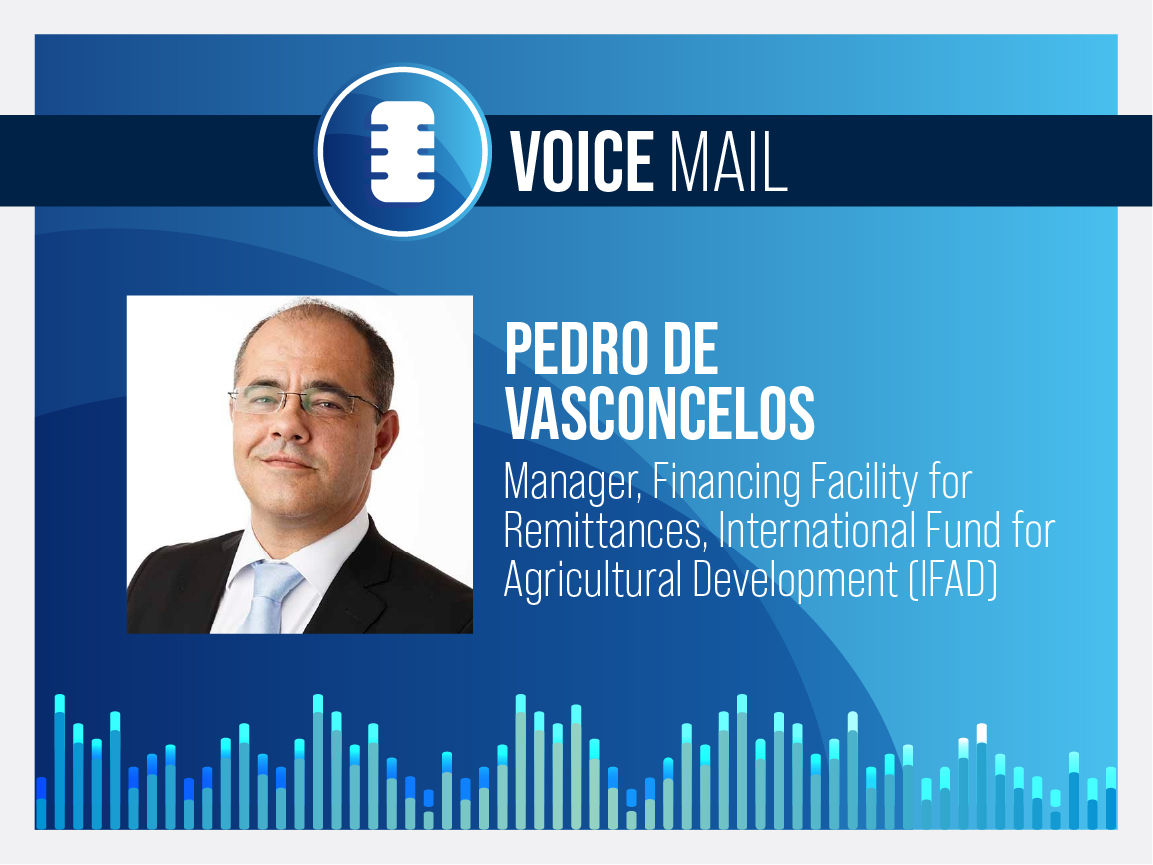 Episode 13: Remittances - the financial service that keeps communities alive
Episode 13: Remittances - the financial service that keeps communities alive
The livelihoods of one billion people around the world depend on affordable and secure money transfers from their loved ones working abroad, known as international remittances. In 2021, migrant workers sent an estimated USD 605 billion to their families, a staggering 8.6 percent up from the previous year. Having pushed a vast amount of informal money flows to the digital space, the pandemic revealed the real face of remittances along with their ever-growing importance. When linked to other financial services, such as loans or insurance, remittances can have a profound development impact in emerging economies and increase their resilience to future crises.
As Posts are reinventing themselves by expanding their portfolio in digital financial services, entering the remittances market can turn them into powerful agents of financial inclusion. UPU spoke to Pedro de Vasconcelos, Manager of the Financing Facility for Remittances at the International Fund for Agricultural Development (IFAD) and originator of the International Day of Family Remittances (16 June), about how Posts, through inclusive finance, can bring financial literacy to rural areas to change the lives of millions of people, one at a time.
 Episode 12: ICT and digitalization in the Caribbean
Episode 12: ICT and digitalization in the Caribbean
In a world where information travels within seconds and a single data breach can threaten national and individual security, multistakeholder engagement and regional cooperation have become the only way to reap the benefits and address the dangers of omnipresent technology. Founded in 1989, the Caribbean Telecommunications Union (CTU) is one cooperation channel with a mission to harmonize ICT policies and practices and create a single yet diverse and prolific Caribbean ICT space. Supporting the single market, driving investment, and modernizing government services are only few of the critical issues that comprise the Caribbean digital transformation agenda, of which Posts are both drivers and beneficiaries. In a new episode of Voice Mail, Rodney Taylor, CTU Secretary General, shares his experience of leading digitalization in small island developing states (SIDS) along with his thoughts on the role of the postal sector in ensuring the growth and the security of post-COVID Caribbean digital economies.
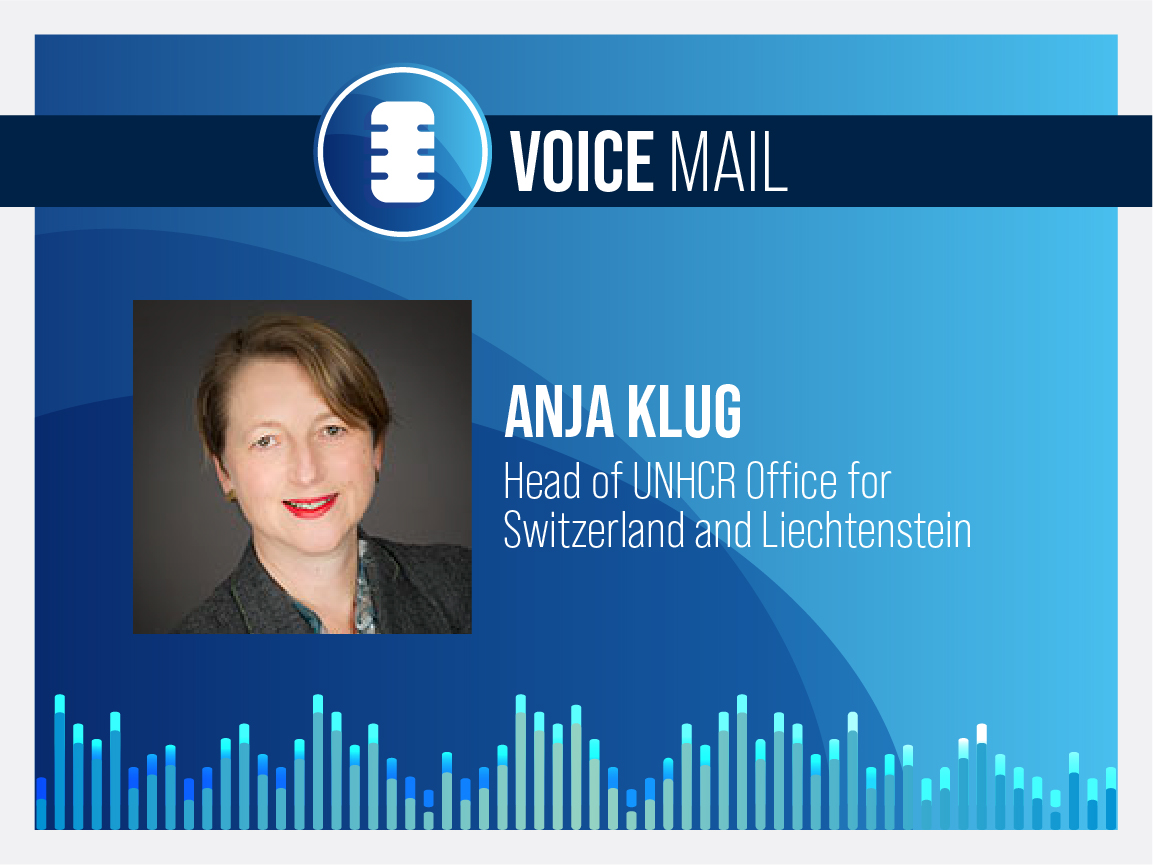 Episode 11: A welcome partner – Working together to support refugees
Episode 11: A welcome partner – Working together to support refugees
In 2021, Switzerland saw the arrival of around 15,000 new asylum seekers. At the beginning of 2022, over just two months, the number of arrivals from Ukraine alone hit 40,000 people. This staggering number of people seeking protection and safety outside their national borders need much more than access to basic means of subsistence – they need access to a dignified life and a variety of special assistance services. Providing those in a timely manner requires a collective and coordinated effort. The United Nations High Commissioner for Refugees (UNHCR) is a specialized UN agency mandated to assist and protect refugees, internally displaced people and stateless persons in every region of the world facing a displacement crisis. Taking on a major humanitarian, coordination and advocacy role in affected and host communities alike, UNHCR works hand in hand with essential social service providers on the ground, including the Post. From cash assistance programmes to information campaigns and social integration – Posts are very welcome partners to support refugees on their challenging journey. Learn more first-hand in a special interview with Anja Klug, Head of UNHCR Office for Switzerland and Liechtenstein, on Voice Mail episode 11.
 Episode 10: E-commerce in Latin America – Serving the fastest growing market
Episode 10: E-commerce in Latin America – Serving the fastest growing market
Over the past two years, e-commerce with its astonishing growth rates became a popular headline of postal news. Deadly for certain industries, the pandemic has turned into a powerful catalyzer for others, putting pressure on companies to search for additional capacity to keep up with the ever-growing demand. That was the case for Ecuadorian start-up “Tipti”. Led by a woman entrepreneur, this online marketplace experienced ten-fold growth, making it the fastest growing e-commerce company in the country. Its CEO and Co-Founder Pierangela Sierra provides a benchmark and inspiration for many women across Latin America. On the 10th episode of Voice Mail, Ian Kerr talked to Pierangela, who is also an UNCTAD eTrade for Women Advocate for Latin America, about the e-commerce landscape in the region, the challenges of overcoming the digital divide, meeting the escalating demand for convenient service and building an e-commerce career as a woman.
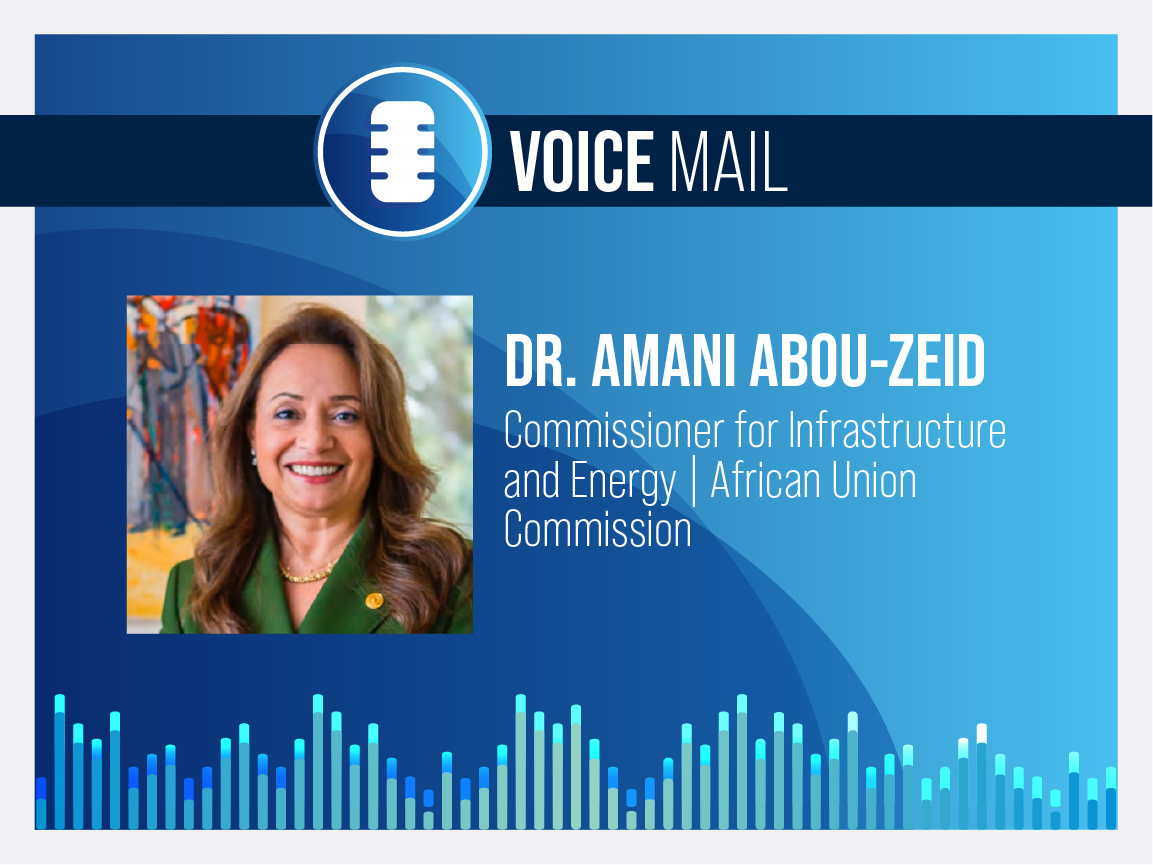 Episode 9: Postal development in Africa – From great challenges to great opportunities
Episode 9: Postal development in Africa – From great challenges to great opportunities
How to integrate and harmonize 55 national postal networks? How to ensure that 55 different ways to develop and digitize are all equally successful in leading Africa to achieve the African Union’s Agenda 2063 goals as well as the U.N. 2030 Agenda for Sustainable Development? In a new episode of Voice Mail, Ian Kerr asks H.E. Dr. Amani Abou-Zeid, African Union Commissioner for Infrastructure and Energy, about the current trends and challenges facing postal operators in Africa. Reaching the unbanked with financial services, seizing digital transformation and e-commerce, facilitating trade, and connecting the most remote villages are just a few of the multitude of ways in which African posts can help the continent to turn great challenges into great opportunities – covered exclusively on Voice Mail.
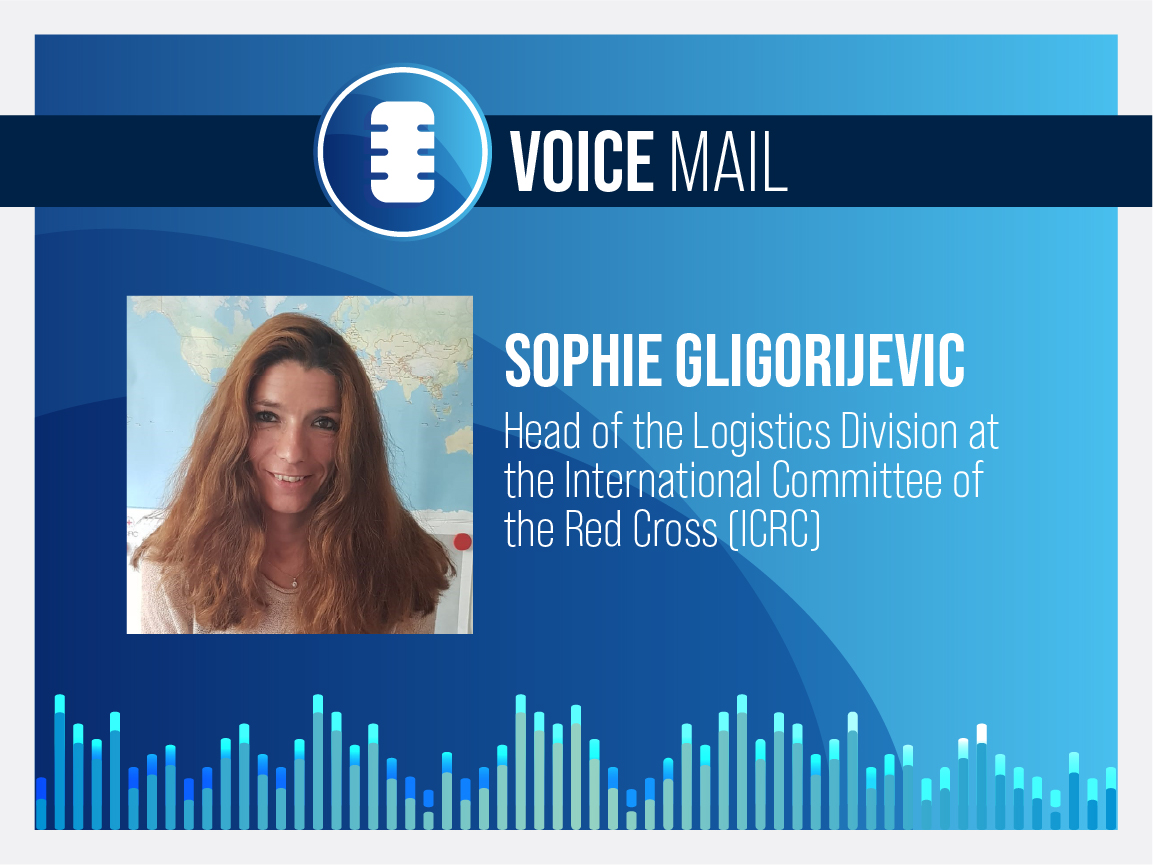 Episode 8: Delivering in crises – Behind the scenes of humanitarian logistics
Episode 8: Delivering in crises – Behind the scenes of humanitarian logistics
According to the Global Humanitarian Overview, in 2022, 274 million people will require humanitarian assistance. Ensuring its timely provision is the task of humanitarian logistics. Over the recent decades, with the growing number and complexity of crises and the related growing pressure on the supply chain, humanitarian logistics professionals needed to respond with greater transparency, further digitalization and greener solutions. While the main driver behind these life-saving deliveries – to deliver by any means, at any cost – is different from commercial ones, those responsible for them generally face the same challenges and trends as the entire logistics sector. All this and more is covered on Voice Mail’s Episode 8 with Sophie Gligorijevic, Head of the Logistics Division at the International Committee of the Red Cross (ICRC) – one of the oldest and most prominent humanitarian actors on the ground.
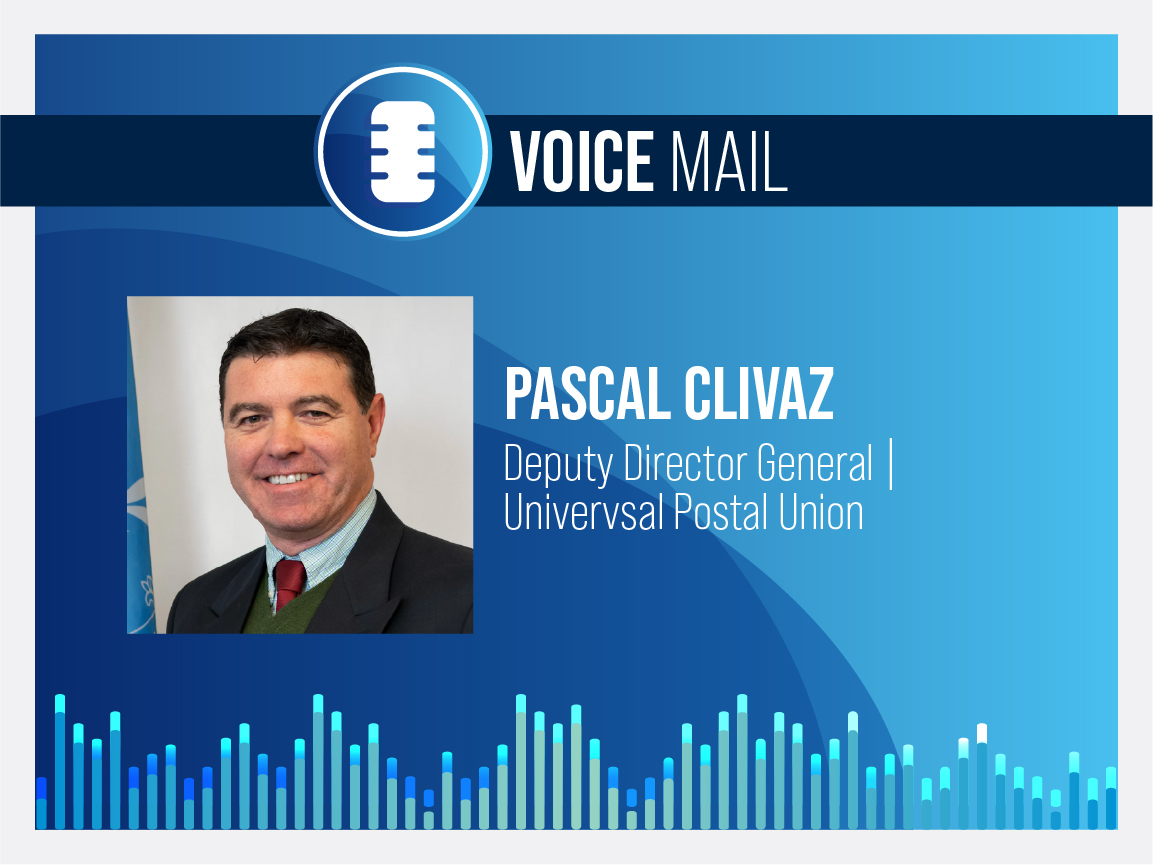 Episode 7: With multilateralism at its core
Episode 7: With multilateralism at its core
Voice Mail is concluding its debut year with an interview with Pascal Clivaz, outgoing UPU Deputy Director General and one of the youngest senior executives in the history of the organization. Drawing on the decades of postal leadership, the conversation offers an exclusive outlook at the future viability of the Union, its biggest challenges, evolving role and positioning, as well as the state of global postal development and postal business models that work. Amid pervasive transformations, it seems that one factor remains key for the success of the postal sector – an approach that is based on dialogue, inclusion and mutual respect.
 Episode 6: Protecting the mail, protecting the public
Episode 6: Protecting the mail, protecting the public
Mail security is paramount. In the era of booming e-commerce and the escalating rates of cybercrime, more than ever, postal customers expect that the mail they bring to their homes is safe and protected. Just as the UPU Postal Security Group (PSG) has awarded its first PSG Chairman Award and as it intensifies its worldwide efforts to prioritize mail security, Ian Kerr spoke to Gary R. Barksdale, Chief Postal Inspector at the United States Postal Inspection Service (USPIS) and UPU PSG Chairman, about the work of the nation’s oldest law enforcement agency, the critical role of prevention and timely reporting, and the ways to improve security levels on both the postal and the consumer sides.

Episode 5: Advance data for advanced quality – seizing the digital era
What is electronic advance data and why is it so crucial for global e-commerce? On this special episode of Voice Mail, recorded at Parcel&Post Expo in Vienna, Austria, Ian Kerr talked to three UPU experts about keeping pace with the digital era and collecting high-quality data for the benefit of customers and the environment. Open UPU, postal digital transformation, electronic advance data, cross-border e-commerce and green deal – all these essential topics explained by postal leaders on the special edition of Voice Mail – live from Vienna.
The episode features:
- Pascal Clivaz, UPU Deputy Director General
- Walter Trezek, Chair of the UPU Consultative Committee
- David Avsec, Account Relations and Product Management Coordinator, UPU Postal Technology Centre

Episode 4: The future is circular
While the world is rapidly approaching COP26, Voice Mail’s host Ian Kerr asked Stephan Sicars, Managing Director of the Environment and Energy Directorate, United Nations Industrial Development Organization (UNIDO), what circular economy means for the planet and our finite resources, how it affects global trade and how global logistical chains can be used by posts to trigger change. From wasting less to generating revenue and protecting peace – the plenty of opportunities offered to us by circular economy in the new episode of Voice Mail.

Episode 3: Abidjan Special
As the world is preparing for the 27th Universal Postal Congress in Abidjan, Côte d'Ivoire, we have asked Mr. Isaac Gnamba-Yao, CEO of La Poste de Côte d'Ivoire, about the role of the Post, the impact of the Congress, postal innovations and postal vision 2030. What is needed for the Post to drive digital transformation in the country? How to reach the biggest and the most progressive part of the population – the youth? All this and much more in the 3rd episode of Voice Mail – Abidjan special.
 Episode 2: Why is the postage stamp still relevant?
Episode 2: Why is the postage stamp still relevant?
From Penny Black to crypto stamps – for over 180 years, postage stamps have been driving the incessant enthusiasm of thousands of collectors and historians around the world. An essential element of postal communications, historical artefacts and works of art – what makes this little piece of paper so attractive and relevant? In the new episode of Voice Mail, Dr Cheryl Ganz, Smithsonian Curator of Philately Emerita and the author of numerous philatelic books, articles and publications, reveals the story behind the reboot of the National Postal Museum, and reflects on the role and the physical and digital future of postal museums and philately.

Episode 1. The story behind the delivery of the COVID-19 vaccine
What is the story behind the delivery of the COVID-19 vaccine? Thomas Ellmann, Vice-President, Life Sciences and Healthcare at Deutsche Post DHL Group, talks to Ian Kerr on the first episode of Voice Mail. He discusses how the group supports distribution of the COVID-19 vaccine, and the sheer magnitude of this global project. Mr. Ellmann describes the technology and infrastructure developed specifically for distributing the coronavirus vaccine, including the need to ensure low temperatures.
